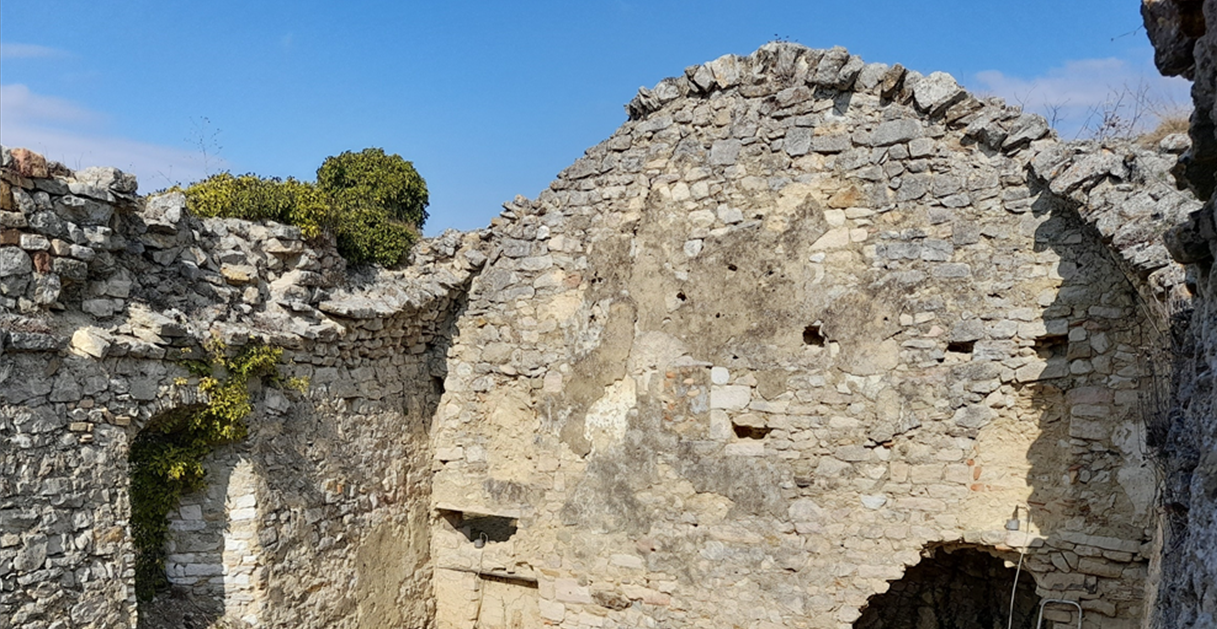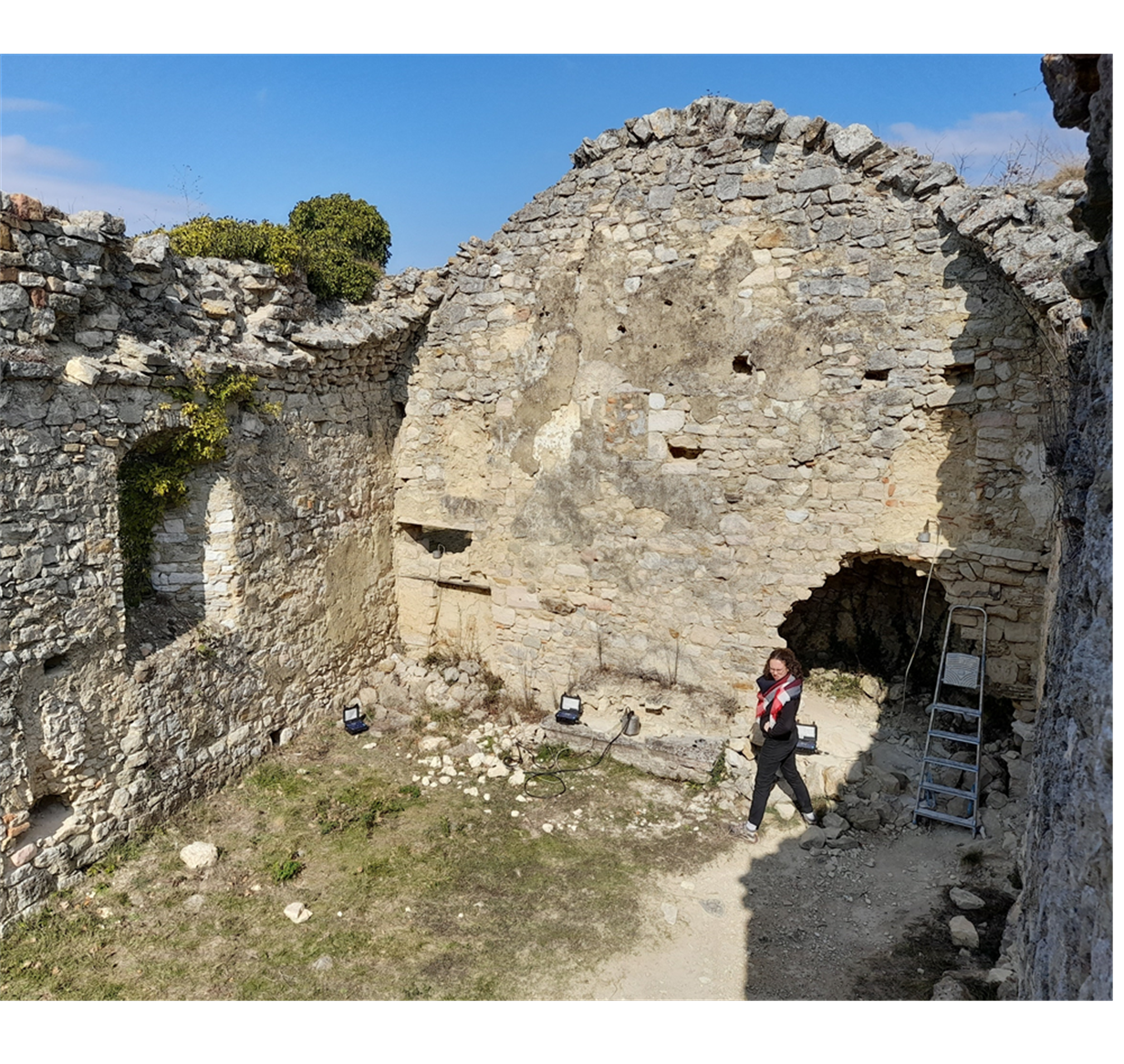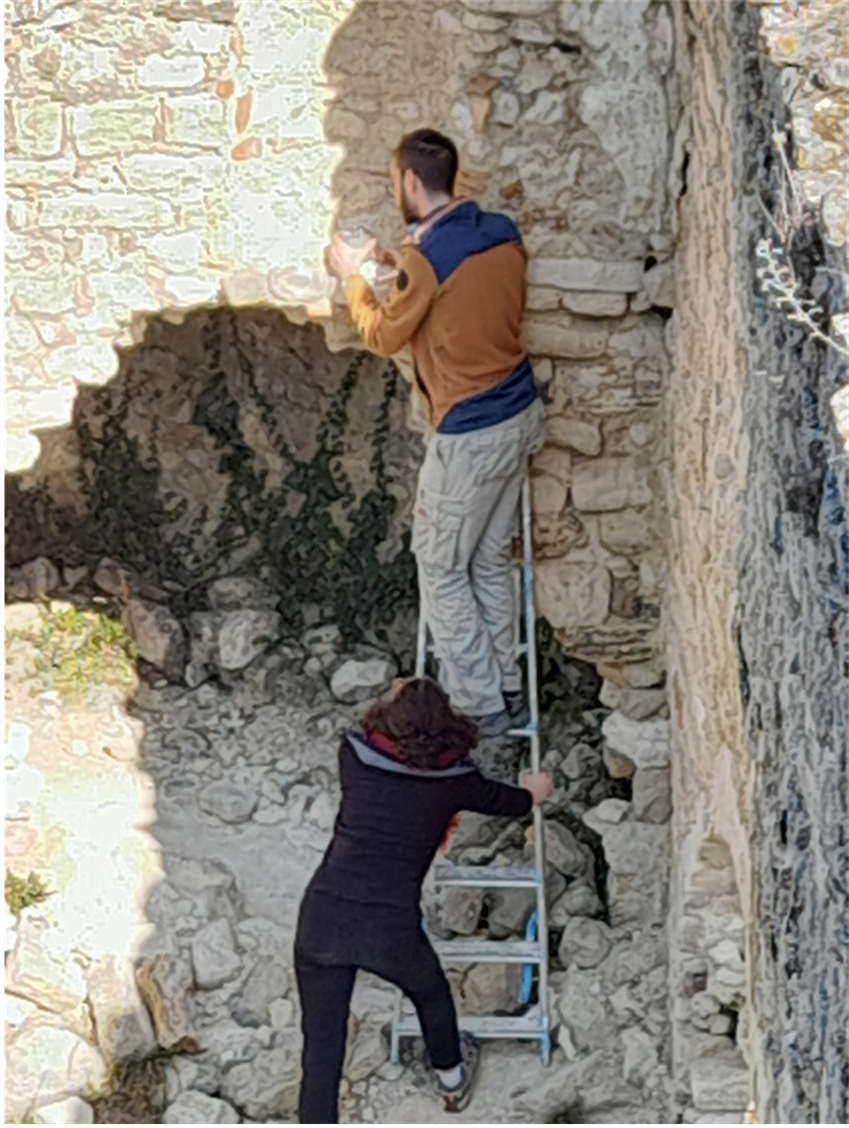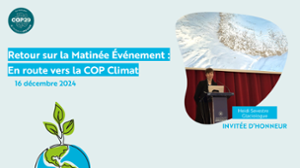Academy of Excellence "Territories, Environments, Risks and Resilience"
on the June 27, 2023

ARCHEOSISMOTEIL : Archaeoseismology in the Teil region, Recording historical earthquakes and the seismic resilience of medieval buildings in Ardèche - D.Mercerat - CEREMA
The project:
The project supported here is part of a larger Cévennes research project: the FREMTEIL project, Faults, Ruptures and Strong Movements in the region of Le Teil, a village in the Ardèche located near the Rouvière fault. This INSU-CNRS project, which will start in 2021 and run for three years, aims to study the rheology of the Rouvière fault. The sudden activity of this fault is responsible for the magnitude 4.9 earthquake of 11 November 2019 in this region. This project involves several scientific fields: geology, geomorphology, paleoseismology and archaeoseismology. The project financed by the Academy3 is part of the latter part of FREMTEIL. It establishes a follow-up of historical earthquakes and of the seismic resilience of medieval buildings in the region of Le Teil.
This monitoring includes 3 phases:
- an inventory of historical earthquakes in the region and the buildings still standing as witnesses to these events
- an on-site study around the building to characterise the modal response of the structure
- modelling of soil movements and their consequences on old buildings
Of the buildings identified, 5 were studied: the chapel of St Jean Baptiste de Rac, the chapel of St Blaise de Montboucher sur Jabron, the old village of Allan, the Château de St Thomé and the château de Rochemaure.
The study of these historical structures provides details of their behaviour in the event of an earthquake: movements, vibration frequencies, cracking zones, etc. The information gathered during the Academy's internship, once modelled, will be synthesised in a database and used for the preservation of historical monuments. The development of a database of the vibration modes and frequencies of monuments in the region will make it possible to anticipate their reactions and their seismic vulnerability. The FREMTEIL project is coming to an end and the consortium of laboratories involved is preparing to report on the progress made and their recommendations before outlining the next steps in the studies.

| Dynamic measurement campaign in the Chapelle St Jean Baptiste in the old village of Allan (Drome) Sarah Perrinel and Andy Combey (Isterre, UGA) installed velocimeters on the old masonry walls. |

The + :
- Innovative project aimed at understanding the past reactions of historical structures in the Ardèche in order to provide recommendations for anticipating and preventing damage caused by earthquakes.
- Method can be replicated at other sites.
What's next?
Project information
|
Scientific field:
Physical geography, Natural hazards, History
|
Theme: Seismology, Archaeology, Seismoarchaeology |
| Keywords: Historical seismicity, Ambient vibrations, Historic buildings, Seismic risks and hazards |
Budget allocated by Academy 3 for the environment of a trainee: 4 500k |
| Project members: Diego Mercerat, Laurence Audin, Andy Combey |
Involved laboratories: CNRS, GEOAZUR, CEREMA, ISTERRE, OCA, IRD |


















